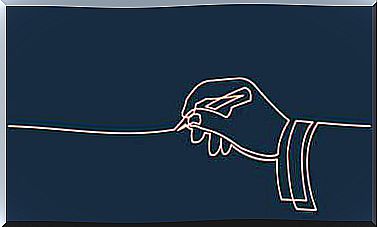How Does The Time Change Affect Us?

Two weekends a year, a good part of the northern hemisphere makes a time change to make the most of daylight hours. The idea comes from very old, being proposed for the first time by Benjamin Franklin in 1784 with the aim of reducing the consumption of candles and oil lamps.
Despite this, the time change was not regularized until 1974 in most Western countries. In Spain, this time change was regulated in 2002 by a Royal Decree, and although in principle it should be renewed every five years, the European Union has given this custom an indefinite character.
Although some experts dispute the effectiveness of the time change, this custom is already too ingrained in our lives to stop doing it without further ado. However, do we know how the time change affects our body? In this article we tell you what science says about it.
How the time change affects our body
According to experts, our body does not adapt very well to time changes. When we “lose” or “gain” an hour, our circadian rhythm is altered, in such a way that a series of negative effects can occur. These changes in the circadian rhythm occur mainly when we travel to another time zone, but we could consider that a change in time is the equivalent of moving one time zone to the east (in the case of advancing an hour) or to the west (in the case of delaying it).
However, our circadian rhythm has been found to be altered by other factors as well, such as staying up late on the weekend or a lack of a regular sleep cycle. Therefore, although the effect of changing a time may be noticeable, it is not an isolated problem.

Some of the most shocking consequences of the time change in our body are the following:
- Greater probability of traffic accidents.
- Increase in the number of heart attacks.
- Greater number of cases of depression.
Let’s see each one of them.
1- Greater probability of traffic accidents
One of the most surprising studies related to time change was carried out in 1999 by John Hopkins at Stanford University. In it, it was seen that the possibility of suffering a traffic accident increased by 5% on the Monday after the time changes.
Later, another study funded by the University of Colorado found the results even more concerning, with an increase of up to 17%. Although the time seems to have nothing to do with the accidents, the data does not lie. But why does this increase occur?
The increase in traffic accidents after a time change could be explained by a hormone called melatonin. In charge of regulating sleep cycles, it is one of the main reasons that we feel alert in the morning. If there is a sudden change in our sleeping patterns, therefore, we will feel much more tired and less attentive during the day.
2- Increase in the number of heart attacks
Similarly, a 2012 study by the University of Alabama suggested that the number of heart attacks increased within three days of the time change. Other studies also show a small increase in the number of strokes.
What is the cause of these two phenomena? Apparently, losing an hour of sleep causes all kinds of problems in our body: increased cortisol, loss of efficiency in the immune system and the feeling of having less energy. Although these problems are not dangerous for the general population, in the case of a person with a previous risk of suffering an attack, they could become the trigger for a heart attack or stroke.
3- Greater number of cases of depression
Finally, some studies show that the time change could be related to seasonal depressive syndrome . This disorder has to do with the lack of exposure to sunlight, which can affect our physical and mental health.

By changing the time, the number of hours exposed to sunlight can also be changed. On the other hand, the effects of this time change are often confused with those of the increase in temperature. In any case, it is still a change to which we have to adapt.









